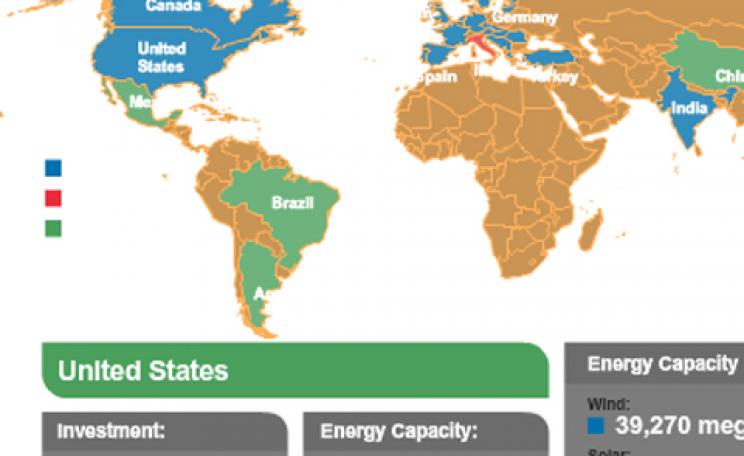The UK Government has confirmed the introduction of new incentives called feed-in tariffs (FITs) to encourage people to generate green energy at home.
From April 1 anyone installing solar panels, wind turbines or other low carbon technologies up to 5 megawatts will be paid for the electricity they produce, even if they use it all themselves.
The feed-in-tariff payments will ensure that people receive 5-8 per cent of their total investment for up to 25 years.
Guaranteed income
Energy and climate change secretary Ed Miliband said the chance of a guaranteed income would be an incentive to householders and communities wanting to 'make the move to low carbon living'.
He also said it would provide a boost to businesses producing and installing small scale green technologies such as wind turbines and solar photovoltaic (PV) panels.
The UK currently gets around 5.5 per cent of its electricity from renewable sources, but will need to increase that to around 30 per cent by 2020 to meet EU targets. The Government expects microgeneration, encouraged by the new tariffs, to contribute 2 per cent of total electricity demand by 2020.
German ambition
Campaign groups say the UK's scheme lacks the ambition of similar schemes introduced elsewhere in Europe and that higher payments are needed to ensure significant numbers of people install small scale green energy systems.
Friends of the Earth said the payments given out for different forms of renewable energy should have been set to produce a 10 per cent return on investment, as was the case in Germany, instead of the five to eight per cent return that has been agreed.
'Installing renewable technologies will now be a good investment for many homes - but farmers, businesses, communities and others will get little or no extra incentive to invest in clean electricity.
'There is huge public support for small-scale green energy schemes. The Government must do much more to tap into this enthusiasm and ensure that everyone plays their part in developing a safer, cleaner future,' said Friends of the Earth's green homes campaigner Dave Timms.
However, Solarcentury executive chairman Jeremy Leggett said the tariffs would be enough to encourage homeowners to install solar panels. He said they could save and earn more than £1,000 per year for 25 years, increasing with inflation, with a typical solar electric system.
Renewable heat
Ed Miliband also announced plans for a similar scheme to pay people who generate heat themselves, to begin in April 2011. The plans will encourage homes and businesses to start heating their buildings by renewable sources such as; woodfuel, biogas and solar thermal.
Useful links
DECC consultation on the renewable heat incentive scheme
| READ MORE... | |
 |
NEWS Feed-in tariffs in danger of being watered down Campaigners say the Government is underestimating the potential of small-scale renewable electricity generation in the UK |
 |
NEWS 10p to create a solar power sector in UK A higher tariff for green electricity generation would help the UK catch up with the rest of Europe |
 |
INVESTIGATION The future of energy is renewable The recent U-turn by of some of the UK's leading environmentalists - and one-time nuclear energy opponents - on the issue of nuclear energy, has caused vigourous debate in the media. |
 |
NEWS 'Green' gas supply for homeowners UK energy company promises to use gas from food waste and sewage to provide homes with 'green' gas supplies |
 |
INVESTIGATION Green Electricity… Are you being conned? Just change your electricity supplier and help fight climate change. Sounds too good to be true. Is it? |








